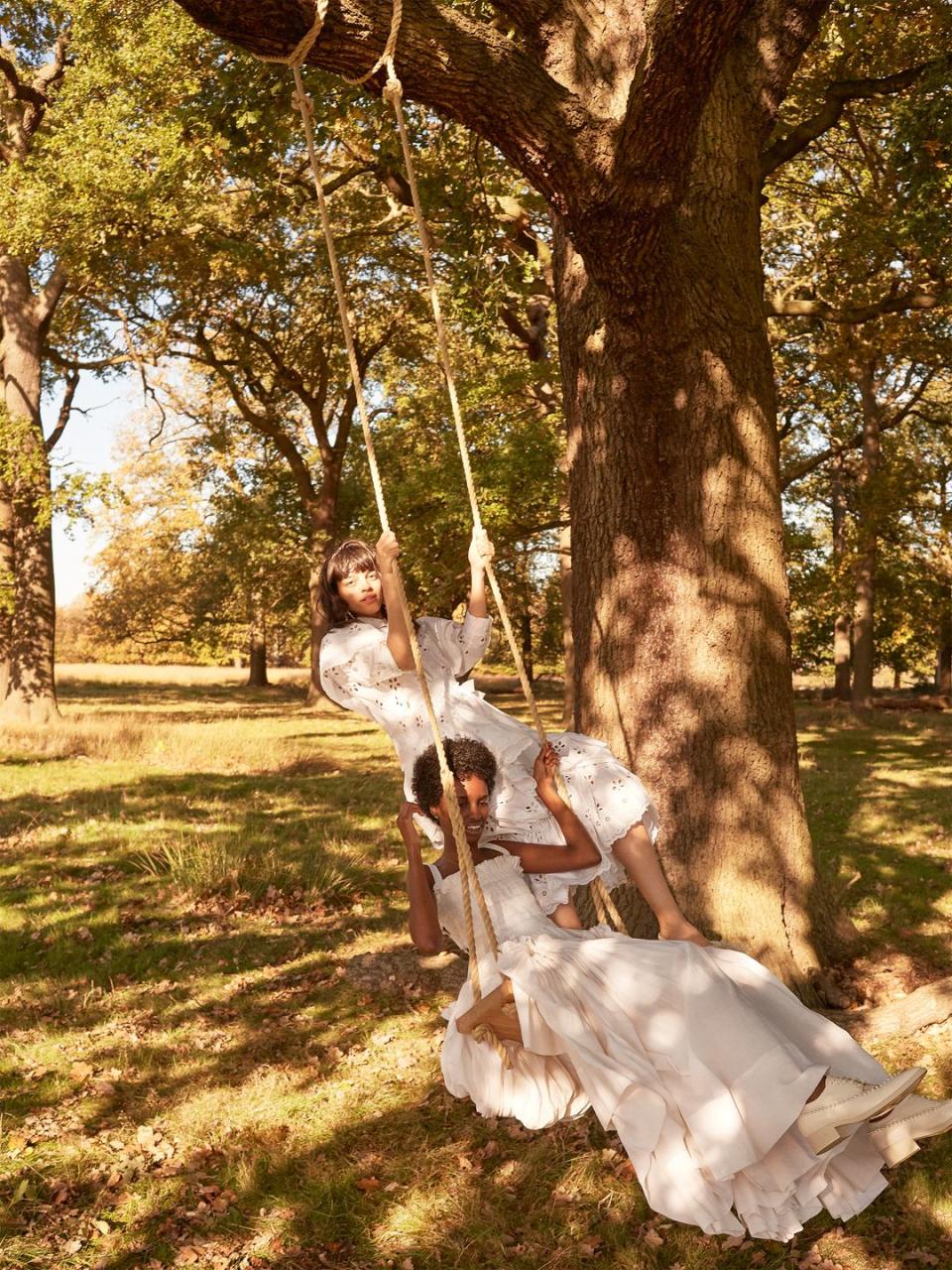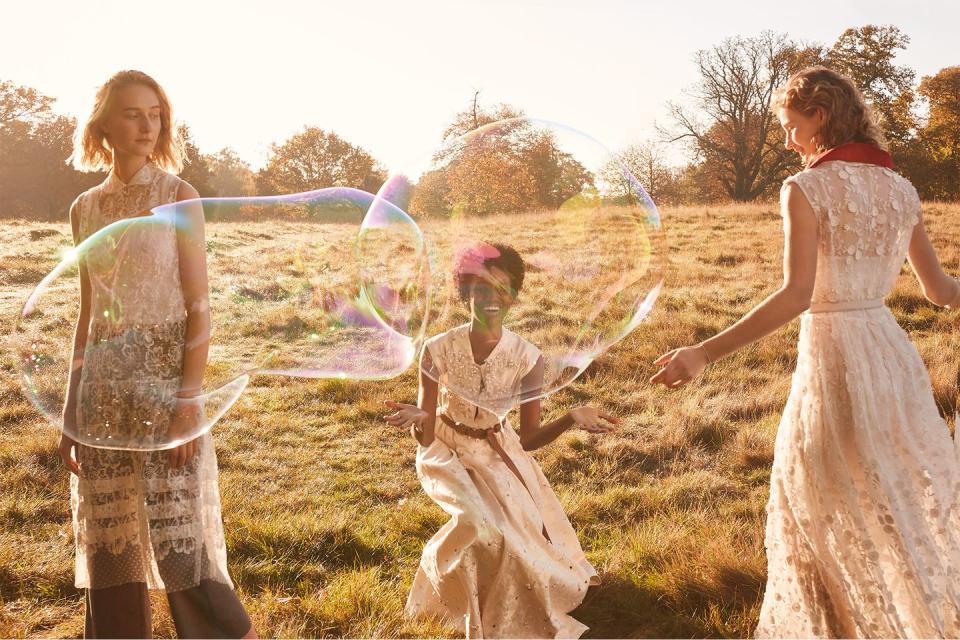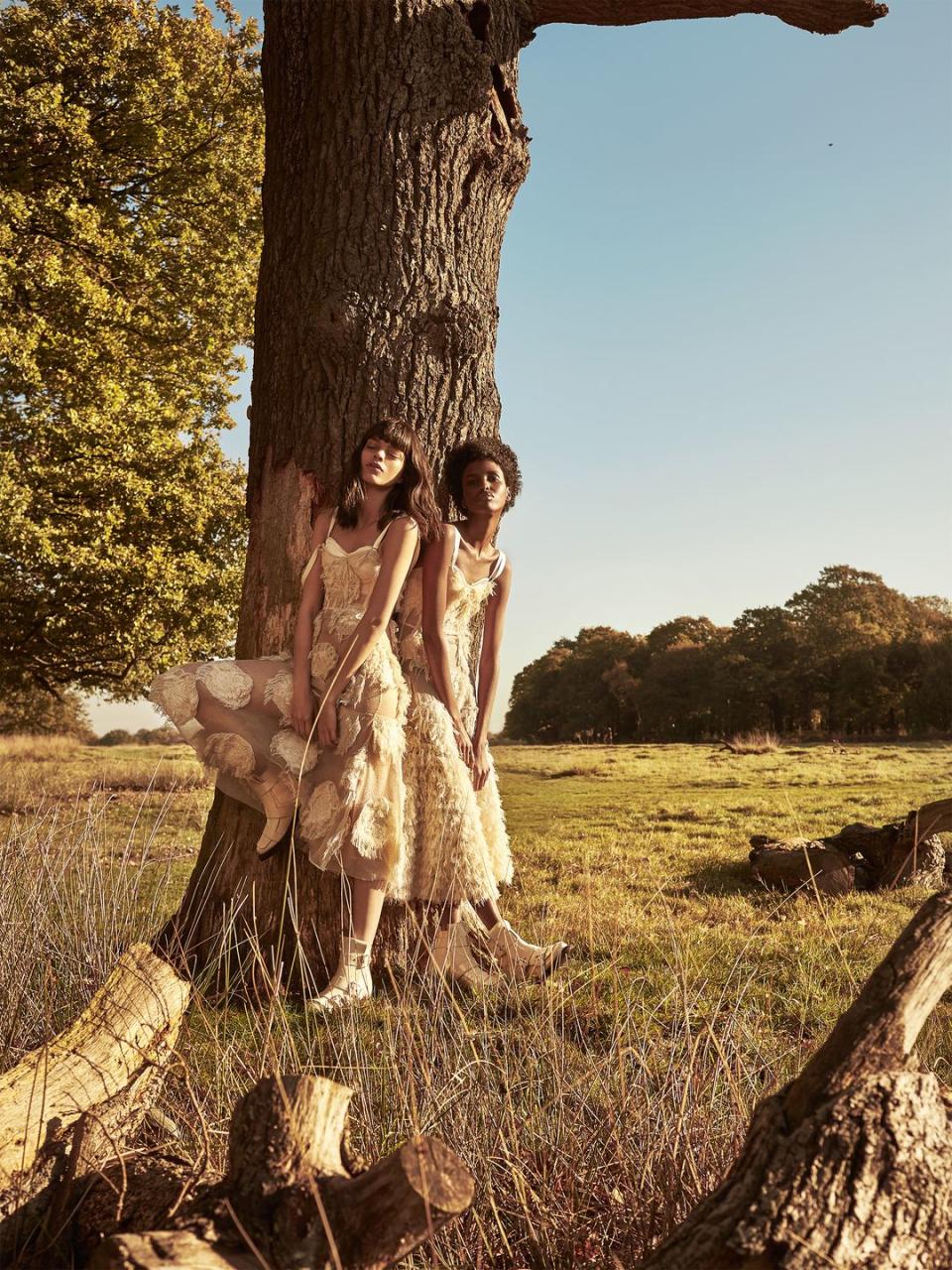We unveil the winning entry of our 2020 short-story competition

There had never been a summer like it.
That was what everyone in the village said when they stopped by our cottage and sat with my mother around our kitchen table, offering their condolences alongside small, neighbourly offerings of one-pot dinners, bottles of milk, loaves of bread. Even I remembered this time last year, the sad soggy rain, which lasted all summer long and made my mother cry and turn to my father in despair to say: Why of all places did you have to come here?
But this year’s summer was as perfectly formed as a china tea set, an endless run of exquisite clear blue skies and bright sun cooled by a string of steady breezes. In the afternoons, lazy white clouds rolled through the sky like long cats, casting a thin shade before dissolving to let the sun stretch into the evenings again. It would have been the perfect summer if not for my father’s death.
The day my father died he took me strawberry picking up at Cross Meadows, and when we came home that afternoon with three bursting punnets, my mother looked the pair of us up and down and said: But why so many? My father held up the three overstuffed cardboard baskets like trophies and said triumphantly: There’s one for each of us! My father and I ate strawberries in the garden for lunch, my mother preferring to warm a small bowl of lentils for herself instead, when the phone rang with a house call.
He kissed the top of my head and then her cheek, though she did not look at him, and then he left. My mother said: Now what? She sighed at our mountain of ruby-hued pickings and spent the rest of the afternoon hulling and chopping and simmering strawberries in sugar, muttering crossly in her language that she had a hundred and one better things to do. I stood in the doorway, unsure whether to offer to help, for often she would snap at me even if my intentions were good, but then her serious face softened and she said: Come!

I ran to her side and for a moment, as we stirred and thickened, I felt as though I was standing in a shaft of sunlight, softness from my mother being a rare kind of magic. When people come into my little shop these days, tourists charmed by the quintessential sweet-ness of my profession, they ask me how it is that I became a jam maker. When I tell them I learnt it from my Indian mother, for a moment they are lost.
On his way home from his house call, my father collided with two other cars and a hedgerow. For days the cottage smelled lovely, like spun sugar, even though my father’s heart had stopped.
*
Though he was in many ways an outsider, my father was well-liked and well-known
in the village. As the local doctor, it seemed everyone was his patient and wherever
we went together, people stopped to say hello and shake his hand. He made friends
with neighbours up and down the lane, exchanging shoots from fruit trees over
garden gates and inviting some of them over for tea, which put my mother out
greatly. On the main street he stopped to talk to every shop owner, every fellow customer, asking after their families and their numerous ailments.
He spent hours on weekends tending to our cottage garden, a handkerchief knotted around his head, or else he took me on long walks or bike rides down to the mere or into the woods, where he taught me how to identify the ash trees from the oaks and pointed out which of the wild, rambling brambles we could pick and eat and which were best left alone.
Once, my father bought my mother a miniskirt from one of the large department stores in the city, more than an hour’s drive away. At home he coaxed her to try it on, and though she blushed and turned this way and that in the hallway mirror with her hands on her hips, and though my father and I clapped our hands and told her she looked beautiful, she quickly changed back into her tunic and trousers and told my father not to be so silly. Some evenings after dinner he walked down to meet friends from the cricket club at The Heart And Arrows pub, cricket being in our blood, he said, although my mother did not approve of this one bit. The first time he went, she was so upset she locked the door and put the latch on.
He pleaded with her to let him back in, which she only did after he had begun to recite couplets from her favourite poet Faiz Ali Faiz quite loudly. She rushed him in, asking in their language if he had gone crazy, telling him to be quiet for what would the neighbours think?
Though my father asked her often to come with us on our walks to the woods or down to the mere or to the cricket club, my mother preferred to stay home cleaning the cottage, making trunk calls to her sisters. Whenever we returned, her mood was always a shade darker. Once, I overheard her speaking in her language on the phone. I understood that what she had said at that moment was: My heart is hurting here.
*
One afternoon, weeks after my father’s death, my mother announced we were moving to a town on the other side of the city. I had been to this town before. Every three months my father drove my mother there to stock up on spices, bagged meat, shawls and cassettes of films with titles I did not understand, all the things she missed. We went into shop after shop, one after the other, each smelling like the inside of a suitcase.
My mother’s favourite store was a fabric emporium. She spent hours inhere, pulling out roll after roll of bright coloured cottons and silks, discussing patterns of tunics she might stitch whileI sat on the floor with a fizzy drink the shop owner had handed me and my father smoked cigarettes outside or waited in the car.
My mother was a different mother in this town. Sometimes she went days without talking in the cottage, replying to my father’s attempts to make conversation only with odd grunts or hard stares depending on her mood. Somedays she did not even talk to me. But in this town, she came alive. Her cheeks flushed and her eyes shone with excitement and when she spoke it was like a song, sweet and soft. She bought me treats, bright orange spirals of fried sugar that made the tips of my fingers sticky, and I sucked on these and watched her, wondering which version of my mother was real; this one, or the one who lived with us in the cottage.
I think that what she hoped for was that someone might invite us to their house for tea, but we were not from here. Every time we visited, she asked my father to drive up and down past rows of terraced houses, trying to convince him to move. One time my parents argued because my mother had wanted to stay longer and my father had said: But I have given you more, I have left all this behind. They spoke in their language, too fast and too angry for me to fully understand, but I think what my mother said was: You are ashamed, aren’t you?
I did not want to move to this town. I liked where we lived. I liked it very much. I liked our quiet village and its tidy row of stores on the main street and its stone cottages and the mere and the green and the cricket club. Though I was a quiet, bookish sort of girl and did not have many friends, I liked my school. I liked the library and the tuck shop and wearing a ribbon around my straw hat, pulling my white socks up to my knees. It seemed to me the more I did these things, the more I might become like the characters in the books I read, the ones with cheery mothers who wore neckerchiefs and pretty skirts and prepared picnic baskets all ready-set-go for adventures.

Since my father’s sudden death, my mother was so pre-occupied with paperwork and phone calls that I spent more and more time alone, roaming in the woods. I felt my father in the blades of grass, in the thick of the undergrowth, in the papery wings of the butterflies and the fallen feathers of the birds and the rough bark of the trees. I did not want to leave.
But that afternoon, my mother spoke in her language in a thick low voice and said: We should be with people who are like us.
Outside a canopy of thin clouds rolled over in the sky and pale shadows passed along the wall. I could only twitch my fingers. My mother was severe and I suppose this made me a passive child, not prone to crying out loud nor banging my fists in anger and I was rarely ever disobedient, but just then I felt something splinter. I ran out of the kitchen door and through the front gate, sobbing in heaps for the first time since my father had died. I heard my mother shout for me but I ran into the woods until finally I could run no more and I threw myself down on the ground, breathless and panting.
I lay there for a long time, my face pressed sideways into the dry earth. Down here, deep in the woods secluded from the sun, a faint chill laced through the sycamore trees, prickling my bare arms. From where I was lying I could see shoots of summer grass, sheaths of wild sweet ferns laden with sap nodding in my direction, clusters of bright buttercups shining like splashes of sunshine. White butterflies flapped like scraps of paper tossed in the air. The earth pulsed.
In the distance I saw clumps of blackberry bushes, bubbling and ripe, and a thick growth of gooseberries, and then I noticed the scrappy edges of magenta stems my father had taught me to strictly avoid. I scrambled to my knees and picked my way through towards the crowded hedgerows until I reached the dark, shiny berries sticking out of their strange stems, red for danger. I fingered the hostile shape of their glossy lance like leaves for a moment, and then, without thinking, I snapped the stems and gathered as much of the fruit my father had warned me not to touch as I could, filling my pockets, staining my hands.
*
There is a moment when you open a pot of homemade jam for the first time and the lid pops and you inhale the sweetness of soft, leathery fruit, when what you smell is not merely sugar and lemon and berries but a memory, a fragment, captured in time. This is what I tell my customers when they come in to my little shop, enchanted by row upon row of glistening jam jars capturing each turn of the season in glass; childhood sweets and grandmas, velvet and violet, sunburn and roller skates. But these are not my memories and the scent of sugar spun berries sickens me.

Decades have passed since I was that child who preserved the crimson jelly of those poisonous berries. For weeks, I coaxed my mother to taste it. I slipped it onto her morning toast, I layered it in cakes, but she only ever nibbled like a mouse so I ate it all myself instead in one go, jar after jar after jar. I fell into a fever that lasted weeks but in the end that was all; a cry for attention they said. I left my mother in her town many years ago now.
These days, I live in a village not dissimilar to the one in which I grew up though I do not know if I belong here. It is a place where in the summer, the fields overspill with rapeseed and meadowsweet speckled like dots of sunlight and the night air is as thick as jelly, sticky with stars. They say this year’s strawberries will be the plumpest crop yet. People imagine my life is pretty. They exclaim: A jam maker! as though I must come from magic with fairy dust in my fingers, mixing potions of fig and rose, blackberry and bay.
Lovers wrap up in my bed under crisp white sheets, mesmerised, for a woman who makes jam must surely be uncomplicated. Sometimes I wonder if I have chosen my line of work as some kind of punishment. This is what I think of as I stir and preserve, stir and preserve.
In need of some at-home inspiration? Sign up to our free weekly newsletter for skincare and self-care, the latest cultural hits to read and download, and the little luxuries that make staying in so much more satisfying.
You Might Also Like


